Water Damage Restoration in Madison, WI
Owning a home or business is one of the hallmarks of living the American Dream. While there are many fulfilling and positive aspects of owning property, one of the challenges that owners face is property damage. This type of damage can be caused by a range of disasters, both man-made and natural. Of all the types of property damage, water damage is among the most common.
Whether from broken pipes or heavy thunderstorms, it doesn't take a professor from Madison College South in Madison to know that water damage can be incredibly harmful to your home. Water can spread quickly throughout your property, causing damage to furniture and porous materials as it moves. In the blink of an eye, you could be looking at substantial rotting, warping, and even mold growth. That's why water damage restoration in Madison, WI is so important - to mitigate the damage to your home and help prevent it from happening in the future.
Trying to overcome flooding and other water-related disasters on your own can seem like a lost cause. But with Disaster Response by your side, you don't have to lose hope. As a local water damage clean-up company, we provide comprehensive restoration services to properties of all sizes in Madison. From the first time we assess your water damage to the time we mitigate and restore, we're here for you.

Dealing with property damage can be overwhelming. You're likely concerned about a few key things:

Navigating the insurance claim process
We guide you through every step, ensuring you understand the process and get the most out of your claim.

Scheduling for a quick and quality completion
We provide a clear timeline for restoration, prioritizing both speed and quality, so you can get back to normal as soon as possible.
You might also be thinking about:

Ensuring the safety and health of your family or employees during the restoration: Our team takes all necessary precautions to protect the safety and health of everyone involved, using the latest techniques and equipment.

Understanding the full scope of the damage and what needs to be done:We conduct a thorough assessment of the damage and provide a detailed plan of action, so you know exactly what to expect.

Knowing the costs upfront and avoiding unexpected expenses: We provide transparent pricing and a detailed estimate before any work begins, so there are no surprises along the way.

Preventing future issues, such as mold growth or structural problems: We don't just fix the visible damage—we address the root causes to prevent future issues, giving you peace of mind.

Protecting your belongings and valuables from further damage: We take extra care to safeguard your possessions during the restoration process, minimizing any further impact.



Minimizing disruption to your daily life or business operations: We work efficiently and flexibly to reduce the disruption to your routine, allowing you to continue with your life or business as smoothly as possible.

Finding a trustworthy team to handle your property with care: Our experienced and highly-trained professionals treat your property as if it were their own, ensuring the highest standard of care.

Ensuring the job is done right the first time: We pride ourselves on doing the job right the first time, using industry-leading techniques and thorough quality checks to ensure lasting results.

Receiving clear communication and updates throughout the restoration process: We keep you informed every step of the way, providing regular updates and clear communication, so you're never left in the dark.

Ensuring the safety and health of your family or employees during the restoration: Our team takes all necessary precautions to protect the safety and health of everyone involved, using the latest techniques and equipment.

At Disaster Response, It's All About You
Like Wisconsin State Capitol in Madison, Disaster Response has been a pillar of the community for years. As a second-generation disaster response company, we know that our work is never about us. At its most basic, it's always about you—your situation, your needs, and your satisfaction. We engineer our processes to help you quickly recover from water floods and disasters. Our total focus is on you, our valued customer. And that, in a nutshell, is what makes Disaster Response one of the most trusted and highly-rated water restoration companies in Madison.
Instead of focusing on profit, bottom lines, and yearly projections, we make you our priority. That's why we're serious about providing expert-level disaster preparedness and response services when you need them the most. Could you imagine trying to decipher misleading fine print or dealing with a pushy salesperson when you're just trying to get your life back together? That's not the Disaster Response way, and it never will be.
We don't just clean up after water leaks, floods, or other disasters; we go above and beyond by providing a consultative approach that serves you for years to come. We assist you in dealing with insurance adjusters to ensure you get the coverage you deserve without unnecessary delays. We make it a point to meticulously review every detail of your claim and work hard to make sure adjusters understand the full extent of your losses. We can also provide guidance on how and when to engage a public adjuster to bypass inefficiencies in the insurance process. At the end of the day, we strive to provide peace of mind during your difficult time and work tirelessly to get your property back to its pre-loss condition.
The Disaster Response Difference

Professional Technicians, Technology, and Processes
In fact, we'll dispatch a team of water disaster technicians to you within three minutes. We'll also advise you on what can be done to minimize the water damage in your home or business. Our water damage restoration team will use cutting-edge technology and IICRC-approved methods to restore as much of your property as possible.

Insurance Advocacy
Disaster Response works one-on-one with you and your insurance provider to expedite the claims process and get your home back to normal as soon as possible.

Satisfaction Guaranteed
We're proud of our work and stand behind every project we complete. Our goal is to exceed expectations and provide peace of mind throughout every step of your water damage restoration process. If you're not satisfied for any reason, we'll listen to your concerns and work tirelessly to rectify any issues that need addressing.



Steve Stadler
DrySource Property Restoration
Disaster Response Introducing DrySource Property Restoration: The Premier Choice for Emergency Clean-Up**
At Disaster 911, we're elevating the standard with ( DrySource Property Restoration ), our trusted go-to contractor for emergency clean-up services. While others may settle for the status quo, ( DrySource Property Restoration ) takes an innovative approach to restoration.
From water and fire damage to mold remediation, ( DrySource Property Restoration ) doesn't just follow industry norms-they set new ones. Our rigorous vetting process ensures that ( DrySource Property Restoration ) exceeds expectations, delivering cutting-edge solutions for your emergency needs.
When you choose Disaster 911 and ( DrySource Property Restoration ), you're opting for a dynamic partnership that prioritizes effective, next-level recovery. Don't settle for the ordinary-when disaster strikes, choose the best in emergency response.
 217 N Main St, Deerfield, WI 53531
217 N Main St, Deerfield, WI 53531
 Call Us
Call Us
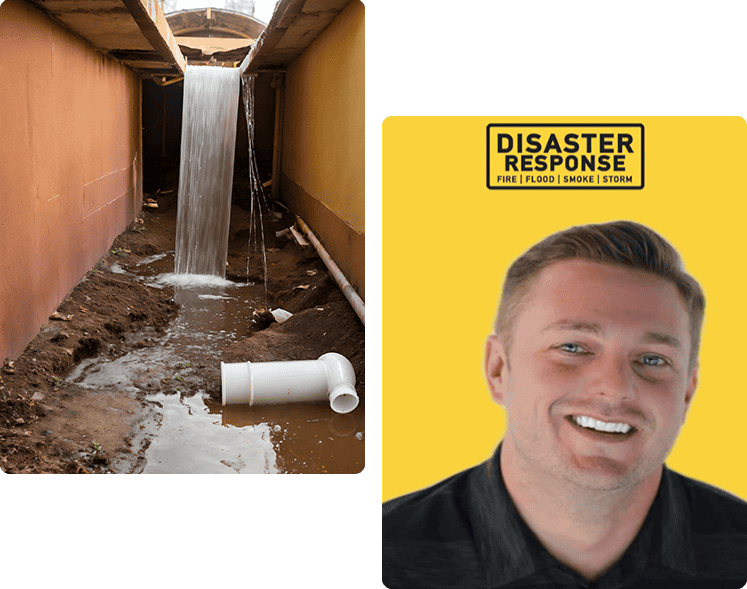
Your Guide to Water Damage Restoration in Madison, WI
Water damage restoration is a key step in remediating damage to your home, both structurally and aesthetically. Damage from water doesn't just affect the walls, floors, and ceilings in your home. It can also cause deeper issues that, when untreated, can weaken your foundation significantly and lead to long-term instability.
As if that weren't enough, water damage can present health hazards to your friends, family, and pets. Mold and bacteria can grow in damp areas after water incidents, causing allergies, respiratory problems, and even visits to Talamore Senior Living Sun Prairie in Madison for examination. Ignoring water damage can also result in irreversible harm to your belongings, including furniture, electronics, and sentimental items, leading to financial loss and emotional distress. Professional water clean-up services can repair the damage to your property, help protect valuable assets, and re-establish your home or business as a safe, healthy environment for occupants.
What Makes Our Water Damage Company in Madison, WI, Different from Others?
One of the most common questions we get at Disaster Response is, "What separates you from other water damage clean-up companies in Madison?" The first and easiest answer to that question centers around our commitment to customer service. We hold our clients in high regard because, without them, there would be no Disaster Response. As such, we work tirelessly to provide them with quality work from friendly and helpful technicians, regardless of the size of their home or business.
But that's just the start. Our clients recommend friends and family to our business because we prioritize the following:

Cost
Investing in damage restoration for your home is a smart move that can help reduce long-term costs. The best part? Our services are covered by insurance companies, so there's less worry about paying out of pocket.

Technicians
Every member of our team has years of experience, specialized training, and certifications in handling water damage. We prioritize our customers' well-being and meticulously attend to every detail to prevent any potential mold-related issues in the future. From single-family homes to
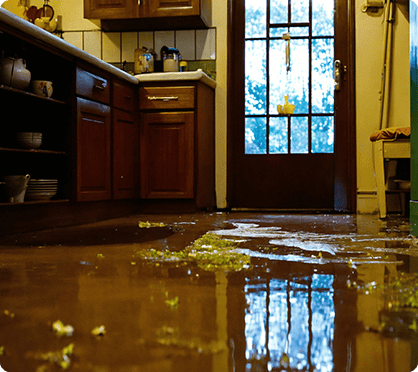
Time
Water disasters happen quicker than you might think. One moment, you're enjoying family time at James Madison Park in Madison. The next, you're pulling in your driveway to a flooded home. When you call our office, we'll get to work assessing the cause of your water damage and how extensive the water damage is in your home or business. From there, we'll dispatch a team of IICRC water damage restoration experts to your location.
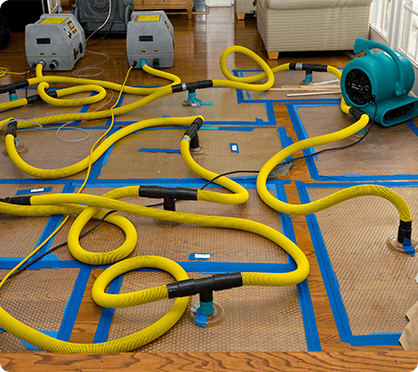
Tools
Disaster Response has made significant investments in cutting-edge water damage equipment, including inspection tools that enable thorough water removal. Our technicians have undergone extensive training to operate these machines and know when and when not to use them.

Process
For over 40 years, we have been helping with water damage issues, refining our process along the way. We can quickly find hidden damages that others might miss and document everything for your insurance company.

Reliable Water Damage Restoration Network
We aren't afraid to ask for help if it means a safer, more enjoyable environment for your family or customers. In fact, we have access to a network of industry pros who are experts in a range of water damage services. To make your life a little easier, we also work with insurance professionals who assist with the claims process.
What Does Disaster Response Fix?
As an IICRC-certified water damage contractor in Madison, WI, our technicians can address several areas of your home or business that have been damaged by a water disaster.
- Floors: It's very important to take the necessary time and steps to effectively dry your floors to prevent any potential water damage and mold growth in the future.
- Walls: Depending on the amount of water that enters your business or home, the structural integrity of your property may be at stake. Our technicians will evaluate the situation, inspect your property, and replace materials damaged by water.
- Rugs: If your rugs get wet during flooding or from another water disaster, they may be salvageable. We'll work hard to save all the rugs in your property.
- Furniture: Your furniture is probably expensive and may hold a certain level of sentimental value. Instead of throwing it away or donating it to Lizard Egy Mound Historic Marker in Madison, we can repair and restore it.
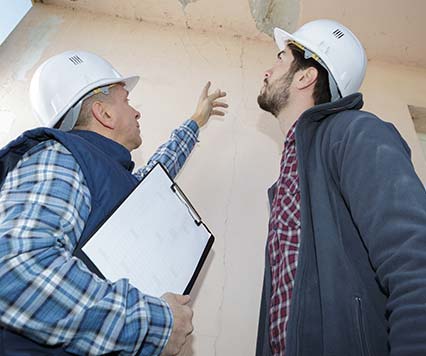
Disaster Response specializes in every kind of damage caused by rain, wind, or snowstorms. We handle water damage, mold, mildew, and more, and can be at your home or office within an hour of your call to assess the situation and put a water damage restoration plan into action.
What Tools Does Disaster Response Use for Water Damage Clean-Up?
We only use the best equipment! With our extensive experience in the Madison restoration industry, we've acquired state-of-the-art tools designed to tackle a wide range of challenges. This experience has also allowed our technicians to identify which type of equipment is best for a particular situation. Some of the most common water damage restoration tools we use include:

Infrared Cameras
Our infrared cameras give us the ability to see moisture in walls and ceilings that is not visible to the naked eye, almost like having "X-ray" vision. This capability allows us to detect and address trapped and hidden humidity, significantly reducing the risk of mold growth.

Moisture Meters
We use moisture meters to measure moisture levels in cellulose material. Before and after the drying process, we will conduct moisture readings in all areas of your property. If we detect moisture in an unaffected area of your building, we'll get to work quickly to dry it.

Air Movers
This equipment is designed to work in conjunction with our dehumidifiers. While our dehumidifiers extract moisture from the air and convert it to a liquid, our Air Mover helps to circulate this moisture in the air so that the dehumidifier can effectively remove it.

Ozone Generators
These advanced tools enable us to cleanse affected surfaces and the air in a more effective manner. Ozone Generators work by causing oxygen molecules to implode, making them a valuable deodorization tool.

Xtreme Xtractor
This tool is great for tackling tough moisture after water damage. It allows us to apply direct pressure to a surface, like a carpet, that has soaked up water. The pressure helps draw out the water, making it easier to remove.
Top 3 Types of Water Damage You Should Know About
Water damage can strike without warning and can wreak havoc on your property, leaving you feeling hopeless and overwhelmed. Whether it's from a burst pipe, a severe storm, or an overflowing appliance, your property needs immediate water damage clean-up in Madison, WI, to prevent further harm. Here are the top three types of water damage you should know about:

Clean Water Damage

This type of water damage happens from a "clean" source, such as rainwater or a broken pipe in your home. It's easier to clean up than others on this list but can still cause extensive property damage when ignored.
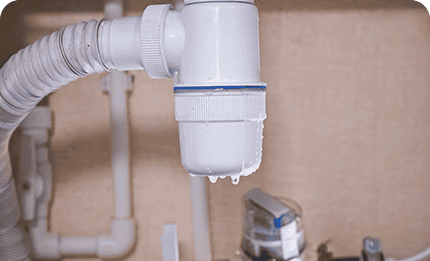
Gray Water Damage

Gray water damage stems from appliances such as toilets without feces, washing machines, and dishwashers. Gray water sometimes contains bacteria and contaminants that can make you or your family sick.

Black Water Damage

The name alone indicates the severity of this type of water damage. It's caused by backed-up sewer lines, river flooding, and standing water that supports bacteria growth. Black water presents serious health hazards and needs to be handled by professional water damage contractors.
If you suspect your home or business has been damaged by one or more of the types of water above, take the following steps:
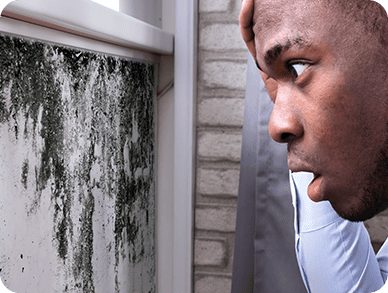
- Be Safe: Turn off all electricity running through your property. Don't go near or touch any water you believe to be contaminated.
- Stop the Source of Water: If you're able, put a stop to the water at its source. That way, you can prevent more damage.
- Call Disaster Response: Contact our water damage company ASAP for water restoration services. Our team is available 24/7 to respond to emergencies.
Our Process for Water Damage Restoration in Madison, WI
Having a water damage restoration company by your side who knows how to remediate moisture is a key factor in getting your life back on track. At Disaster Response, we have refined our process over 40+ years of water damage clean-up experience. That way, we can provide customers with reliable, comprehensive service when they need it the most.
We utilize powerful pumps and vacuums to eliminate standing water from your property. Swift water removal is essential in minimizing damage and lowering the likelihood of mold growth. Our team is dedicated to ensuring efficient water extraction to prevent any additional complications.
After extracting water from your property, we dry and dehumidify the impacted areas. We use industrial-grade dehumidifiers and air movers to do so to eliminate moisture from walls, floors, and furniture. Proper drying helps prevent warping, swelling, and the growth of mold.
Whenever we deal with water damage, we have to address the potential contaminants and bacteria that can enter your home. We make sure to thoroughly clean and sanitize all affected areas to create a safe living environment. This involves cleaning carpets, upholstery, and personal belongings. Our technicians also use antimicrobial treatments to prevent mold and bacterial growth.
The final step in the process is the restoration of your home to its pre-damage condition. This comprehensive restoration process may encompass a range of tasks, from minor repairs such as replacing drywall and installing new carpeting to major reconstruction efforts. Rest assured that Disaster Response is fully equipped to manage all aspects of water damage restoration, from start to finish.
- Maintenance: Have your business or home's roof, appliances, and plumbing inspected by professionals to spot early signs of wear and tear.
- Water Alarms: If there is a flood or leak in your home, a water alarm can alert you so that you can take action immediately.
- Drainage: Your home needs proper drainage systems in place at all times. To prevent water buildup, be sure to unclog your downspouts and gutters.
- Cracks and Gaps: Be sure to seal up any cracks and gaps in your property's foundation to limit water from getting inside.
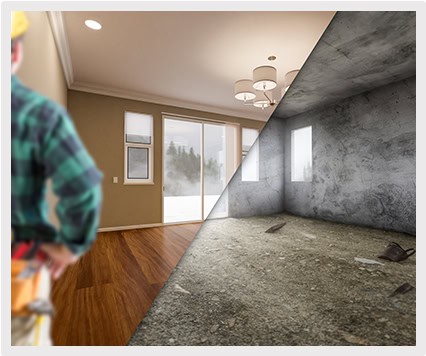
The Water Damage Company in Madison, WI, You Can Trust
When you want a great steak, you don't go to a fast-food joint and expect a filet. You go to a L'Etoile Restaurant in Madison. When you need quality disaster response services from licensed professionals, you don't go to a fly-by-night shop. You contact Disaster Response.
As a local water damage clean-up business, we believe that providing clients with effective service that they can rely on in times of stress is of utmost importance. While some of our competitors prioritize profits over people, you can rest easy knowing we care about you - and that's something you can always count on when you choose our water damage company.
Whether a pipe has burst in your commercial space and your showroom is flooding, or your home has standing water from a Madison rainstorm, we're here for you 24/7. Contact our office to learn more about the Disaster Response difference or to schedule an inspection for your property today.
Contact Your Emergency Disaster Response Now!
Latest News in Madison, WI
Madison referendum backers spend over $200,000
Andrew Bahlhttps://captimes.com/news/elections/madison-referendum-backers-spend-over-200-000/article_a79fe1dc-96f9-11ef-8300-07e53bf1d849.html
Supporters of three referendums from the city of Madison and the Madison school district have spent nearly a quarter of a million dollars combined to advocate for “yes” votes, according to campaign finance records.Madison city officials are asking residents to approve $22 million in additional property tax revenues to avoid what they say would be steep cuts to services. The school district is pushing for $100 million in additional taxes to support its operations, as well as a separate $507 million referendum to renovate or...
Supporters of three referendums from the city of Madison and the Madison school district have spent nearly a quarter of a million dollars combined to advocate for “yes” votes, according to campaign finance records.
Madison city officials are asking residents to approve $22 million in additional property tax revenues to avoid what they say would be steep cuts to services. The school district is pushing for $100 million in additional taxes to support its operations, as well as a separate $507 million referendum to renovate or rebuild 10 schools.
The bulk of the campaign spending has gone toward one group’s effort to promote the two school proposals, according to public records filed with the Madison Metropolitan School District.
Strong Schools, Strong Community, which is backed by an arm of the Madison Public Schools Foundation, is the primary group urging a “yes” vote.
The organization has spent nearly $223,000 since the start of the year, a campaign finance report filed last week shows. Most of that spending occurred between late September and mid-October.
Top donors to the group include the North Carolina-based political action committee Strategic Victory Fund, which donated $100,000. The political arm of Madison Teachers Inc., the union representing educators in the district, has also donated $80,000 since January.
Much of the money has been used on consulting services from the Madison firm Spector Roh Strategies, as well as marketing and phone banking in support of the referendum.
The group has launched a website and social media accounts advocating for the referendum, as well as digital and radio advertisements.
Under state law, groups advocating for or against a referendum must report their campaign finance activities if they spend or receive over $10,000. No group opposing any of the referendums has hit that $10,000 threshold, though some have tried to organize an effort to urge residents to vote “no.”
The ballot questions also have generated substantial debate. If all three referendums pass, property taxes for the average homeowner could increase by about $1,580 by 2028.
The campaign finance reports do not include public funds spent by the city and school district to inform voters about the referendums, including postcards and letters mailed recently to Madison residents.
A private-sector group’s spending to push the city referendum has been more subdued.
Yes for Madison, the group urging approval of the $22 million question, has spent $2,200 so far this year. Almost all of that was spent on consulting costs.
Of the $20,665 raised by Yes for Madison, $3,150 came from members of the Madison city council or city staff, including $1,025 donated by Mayor Satya Rhodes-Conway. The two unions representing city workers also donated $7,500.
Across Wisconsin, nearly half of the school districts are asking voters to approve referendums in the Nov. 5 election. Twelve municipalities, including four in Dane County, are asking for the ability to increase property tax revenues, according to data provided by the Wisconsin League of Municipalities.
Andrew Bahl is a politics reporter for the Cap Times. Andrew writes about Wisconsin politics with a focus on state government and elections. Email story ideas and tips to Andrew at abahl@captimes.com or call (608) 252-6418.
Please consider supporting Andrew’s work by becoming a Cap Times member or sponsor. Sustaining local journalism in Madison depends on readers like you.
Watch Mumford & Sons, Gracie Abrams Perform at Harris Rally in Wisconsin
Emily Zemlerhttps://www.rollingstone.com/music/music-news/gracie-abrams-mumford-and-sons-kamala-harris-rally-wisconsin-performance-1235148405/
Mumford & Sons, Gracie Abrams, and the National rallied behind ...
Mumford & Sons, Gracie Abrams, and the National rallied behind Kamala Harris last night in Madison. The musicians, as well as Remi Wolf, performed for the crowd at the Veterans Memorial Coliseum, with Abrams and Wolf also giving speeches in support of Harris.
Mumford & Sons performed four songs, “The Cave,” “Little Lion Man,” “Awake My Soul,” and “I Will Wait.”
Before performing “I Love You, I’m Sorry” and “Free Now,” Abrams encouraged young voters to step up for Harris.
“For many of us here onstage and in this crowd tonight, this is either the first or second time that we’ve had the privilege of voting in a presidential election,” she said. “As we know, we’ve inherited a world that is struggling and it’s easy to feel disconnected and disillusioned. Between the advent of social media in our childhoods and Covid and relentlessly targeted disinformation, we’ve been through some things. It’s easy to be discouraged, but we know better. We know that unless we vote and keep our democracy intact, there is nothing we will be able to do to fix it when it is our turn.”
The National’s Aaron Dessner and Matt Berninger dedicated their song “I Need My Girl” to Harris. Wolf, meanwhile, performed “Cinderella” and explained why she was supporting Harris during a short speech. She noted that Americans need “a place where we feel safe, accepted and free.”
“That is why I’m here today to support our future president, Kamala Harris, in her efforts to create this safe space for us again,” Wolf said. “She understands that the right to make decisions about our own bodies is fundamental. She’s committed to tackling big issues like climate change and, like me, she’s a girl from the Bay Area who loves to laugh and have fun.”
Harris used the rally as an opportunity to speak directly to younger voters. “I love your generation, I just love you guys,” Harris said of Gen Z. She praised young people for being “rightly impatient for change,” acknowledging the issues that face them specifically. “I see your power, and I’m so proud of you,” she added. “Can we hear it for our first-time voters!”
Watch the full Madison rally below:
Madison voters approve $607M in ‘unprecedented’ school referendums
Kayla Huynhhttps://captimes.com/news/education/madison-voters-approve-607m-in-unprecedented-school-referendums/article_84558e32-9be7-11ef-ad84-735cfd30844c.html
With 100% of precincts reporting unofficial results in the Nov. 5 election, the Madison school district achieved victory on a pair of tax referendums totaling $607 million.Voters approved both questions on the ballot, including $507 million to renovate or replace 10 schools and $100 million for the Madison Metropolitan School District’s day-to-day operations.About 72% of voters favored the facilities referendum and 69% favored the operations referendum, exceeding the majority needed to pass by tens of thousands of votes....
With 100% of precincts reporting unofficial results in the Nov. 5 election, the Madison school district achieved victory on a pair of tax referendums totaling $607 million.
Voters approved both questions on the ballot, including $507 million to renovate or replace 10 schools and $100 million for the Madison Metropolitan School District’s day-to-day operations.
About 72% of voters favored the facilities referendum and 69% favored the operations referendum, exceeding the majority needed to pass by tens of thousands of votes.
In a statement Tuesday night, Superintendent Joe Gothard said the results show the community "continues to be committed to investing in our students."
"Our focus, as always, is centered on our students, staff and families," he said. "We have important work ahead of us and look forward to engaging with the community to make Madison a destination school district."
The two referendums were “unprecedented in size and scope in district history,” according to an analysis from the nonpartisan Wisconsin Policy Forum.
Average homeowners will see a $40 hike in their property taxes this year for the operations referendum. By 2028, the operations referendum will permanently raise the average homeowner’s property taxes by an estimated $1,050 annually.
Starting next fall, the facilities referendum will also increase property taxes by nearly $325 annually for the average homeowner over the next 23 years.
The nonprofit Madison Public Schools Foundation spent nearly $223,000 this year on a campaign urging residents to support the referendums. Melinda Heinritz, who leads the foundation, thanked voters in a statement Tuesday night.
"We are incredibly grateful to this community for voting in support of our public schools, students and staff," Heinritz said. "Because of the investments you made toward our future and the growth of our community, MMSD will be able to make critical repairs to their facilities, build new modern schools, and continue to uplift the wellbeing of all of its scholars and staff."
With the approval of the operating referendum, district officials can move forward with a recently passed budget that includes a portion of the $100 million.
The district will have $30 million in additional funds to draw from this year. Over $7 million of that money will go toward a 2.06% salary increase for district employees. The remaining funds will mostly be used to maintain the district’s current services.
The rest of the $100 million ask will phase in over the coming four years, with another $30 million added next school year and $20 million for each of the following two years.
The total $100 million will then be permanently added to the district's state-imposed revenue limit, allowing it to spend more than otherwise allowed.
Leading up to the election, school district leaders said the funding would help expand academic programs, like multilingual education and 4-year-old kindergarten options. They stopped short of outlining more specific spending plans, but Gothard told the Cap Times last week that the money could still be used to expand programs in future years.
Despite the funding increase, the school district still expects to have a $22.9 million structural deficit this year.
Gothard said district leaders would identify potential budget cuts for next year following the election results. He said those cuts could include staff reductions.
“We are not going to have sustainable revenue moving forward, so we are going to have to look at identifying priorities,” Gothard said. “If there are 100 priorities, I'm here to say that we likely are not going to be able to fund all 100.”
With the approval of the $507 million facilities referendum, district leaders will also begin planning upgrades to 10 school buildings.
With $443 million of the total, the district has proposed reconstructing five buildings that are home to two elementary schools, five middle schools and Shabazz City High School. The remaining $64 million would renovate Anana Elementary School and Crestwood Elementary School, extending the life expectancies of those buildings by 25 to 30 years.
Each school is either past its prime or nearing the end of its life expectancy, according to district records. Most lack air conditioning or operate with decades-old boiler heating systems. Some are failing to meet federal accessibility laws.
Construction would begin in spring 2026 and finish in summer 2029, according to a proposed timeline. Rebuilding each school would take a little over a year. Renovations to Anana would last through spring 2028 to summer 2029. Crestwood would be renovated from spring 2029 to summer 2030.
At the Elver Park Shelter’s polling place Tuesday afternoon, voter Meg Murphy said she wanted to support the schools "for compensation, better equipment, better buildings."
"I think that's really important and often overlooked," Murphy said.
Kayla Huynh is an education reporter for the Cap Times. Kayla writes about schools serving young children and teens in the Madison region. Email story ideas and tips to Kayla at khuynh@captimes.com or call (608) 252-6472.
Please consider supporting Kayla’s work by becoming a Cap Times member or sponsor. Sustaining local journalism in Madison depends on readers like you.
Voters pass Madison’s $22M referendum to avoid service cuts
Nicholas Garton and Enjoyiana Nururdinhttps://captimes.com/news/voters-pass-madison-s-22m-referendum-to-avoid-service-cuts/article_9680ef8b-36fa-5df2-a281-7fc0d60dad68.html
City leaders are closer to maintaining the services and programs that many Madison residents rely on — including trash and recycling pick-up, libraries, busing and mental health services — after voters approved a $22 million referendum Tuesday.With 100% of precincts reporting unofficial results, the property tax hike backed by Mayor Satya Rhodes-Conway passed with about 57% of voters in favor. City officials estimate the hike will cost the average Madison homeowner $230 annually.If voters rejected the referendum, Rh...
City leaders are closer to maintaining the services and programs that many Madison residents rely on — including trash and recycling pick-up, libraries, busing and mental health services — after voters approved a $22 million referendum Tuesday.
With 100% of precincts reporting unofficial results, the property tax hike backed by Mayor Satya Rhodes-Conway passed with about 57% of voters in favor. City officials estimate the hike will cost the average Madison homeowner $230 annually.
If voters rejected the referendum, Rhodes-Conway had proposed cutting $5.6 million for city services to help fill an anticipated $22 million budget hole next year. She also proposed hiking fees by $10 million and tapping one-time budget reserves.
Now, with additional funding from property taxes, city leaders could avoid making cuts entirely — though Rhodes-Conway has urged making at least 1% reductions to city agency budgets to avoid fee hikes and maintain budget reserves.
Leading up to the election, Rhodes-Conway and City Council members frequently blamed the city’s financial misfortunes on state lawmakers, who have passed limits on local property taxes and who control how much state aid flows to local governments for services.
“Obviously, this is not the end of the story," the mayor said at a news conference Tuesday night. "We have a lot of work to do going forward, and this will make the 2025 budget process a little easier, but we still have to look outwards for multiple years.”
“I'm absolutely committed to doing the work with the state Legislature to find a solution, not just for Madison, but for cities all across the state of Wisconsin who need the Legislature to invest in them,” Rhodes-Conway added.
Ald. Derek Field, who represents the far east side of Madison, similarly pointed to working with state lawmakers as the next step as election results were reported Tuesday.
“I think the result shows residents strongly support their city services and recognize the tough spot Madison is in with state pressure on the city’s budget,” he said. “For me, this result reinforces that we all really need to work with state legislative partners to get a permanent state policy fix to municipal operating deficits in Wisconsin.”
City leaders have also played a role in Madison’s budget challenges, though. While projecting budget deficits in recent years, the City Council nonetheless approved a series of pay raises for city employees, adding millions in costs to future budgets.
City officials reported spending at least $47,168 on mailers ahead of the election to notify residents about the referendum. In campaign finance disclosures, a group advocating for the referendum reported raising more than $20,000, including $1,025 from the mayor.
Groups advocating for or against a referendum must report campaign finance activities under state law after spending or receiving over $10,000. No group opposing the city referendum hit that threshold days before the election, but the measure had vocal opponents.
Former Mayor Paul Soglin, former Dane County Sheriff Dave Mahoney and former Ald. Sherri Carter held an event publicly calling for the measure’s rejection. Among other reasons, they argued that city leaders hadn’t tried hard enough to lobby for more state funding.
Sabrina Madison, an alder on the city’s budget committee, said she and members of her family have used city services at risk of being reduced. She said the city’s most vulnerable would be harmed if the referendum failed, echoing concerns from other community members.
“If we don't pass this referendum, we are going to increase the burden on people who are using food pantries, who are using eviction prevention resources, like the Tenant Resource Center, who are using our shelters, who are catching a bus,” Madison said.
The mayor agreed.
“Despite our best efforts, the cuts that we laid out would disproportionately affect lower-income households,” she said.
The City Council plans to weigh the mayor's budget proposals and decide its own budget plans in mid-November. Madison urged prioritizing wages of the people who provide city services and funding for agencies that make the city a community.
Ald. MGR Govindarajan, who represents parts of the University of Wisconsin-Madison campus, said college students would have been significantly affected if the referendum failed.
“I think most of my constituency will vote in favor of the referendum,” he said ahead of the election result. “Voting ‘yes’ is the right thing to do for our demographic in downtown Madison.”
Nicholas Garton is a local government reporter for the Cap Times. Email story ideas and tips to Nick at ngarton@captimes.com or call (608) 252-6443.
Enjoyiana Nururdin is a local government reporter for the Cap Times. Email story ideas and tips to Enjoyiana at enururdin@captimes.com or call (608) 252-6465.
Please consider supporting Nick and Enjoyiana's work by becoming a Cap Times member or sponsor. Sustaining local journalism in Madison depends on readers like you.
UW-Madison spin-off idea headed to Wisconsin Legislature
Corrinne Hesshttps://www.wpr.org/news/uw-madison-spin-off-wisconsin-legislature
The committee studying the future of the Universities of Wisconsin wants the state Legislature to explore spinning off the University of Wisconsin-Madison.But the group voted against several other proposed measures, including increasing tuition and limiting courses at individual universities to “avoid duplication,” and restricting the independence of the Board of Regents.The 18-member legislative committee made up of politicians and community members has been meeting since July to consider the future of the state&rs...
The committee studying the future of the Universities of Wisconsin wants the state Legislature to explore spinning off the University of Wisconsin-Madison.
But the group voted against several other proposed measures, including increasing tuition and limiting courses at individual universities to “avoid duplication,” and restricting the independence of the Board of Regents.
The 18-member legislative committee made up of politicians and community members has been meeting since July to consider the future of the state’s public university system.
Stay informed on the latest news
Sign up for WPR’s email newsletter.
On Oct. 24, committee members voted on 19 proposals to possibly send to the Legislature. But the paper ballot results weren’t released until Friday.
Any change to the Universities of Wisconsin’s structure requires legislative approval and would happen when the session begins next year.
On Monday, a spokesperson for Gov. Tony Evers said if the proposal reaches his desk, he would veto it.
“Gov. Evers has spent years fighting to bolster and support campuses across our UW System, including the UW-Madison, and a proposal splitting off our state’s flagship campus from the rest of the UW System is a nonstarter,” said Britt Cudaback.
Splitting off the system’s flagship school received 13 “yes” votes and five “no” votes.
Those voting in favor of spinning UW-Madison off included: State Rep. Amanda Nedweski, R-Pleasant Prairie; state Sen. Cory Tomczyk, R-Mosinee; former UW Regents Bob Atwell and Scott Beightol; UW-Green Bay Professor Shauna Froelich; UW Foundation board members William Hsu and Peter Kies; former UW system vice president Jim Langdon; UW-Madison professors Ananth Seshadri and Cecelia Klingele; CEO of Wisconsin Manufacturers & Commerce Kurt Bauer; Marshfield businessman Jerome Lippert; and CEO of the Chicago-based company Miami Corporation Management Robert Venable.
In a statement, Kies and Venable, representing a group called Badger Advocates, said creating a dedicated board for UW-Madison would improve outcomes for all of the state’s public universities.
“Doing so would enhance the ability for one Board to focus solely on our flagship university’s unique challenges and opportunities while bringing its governance model more in-line with its peers,” Kies and Venable said. “Having a separate board govern the State’s twelve regional universities can accelerate finding solutions to the demographic and financial challenges that many of these campuses now face.”
State Sen. Chris Larson, D-Milwaukee; state Rep. Alex Joers, D-Middleton; UW-La Crosse Provost Betsy Morgan; former UW Regent Jan Mueller; and Mark Tyler, who serves on the state Technical College System board, voted against the proposal.
Supporters of the spin-off say doing so would be a way for UW-Madison to compete on a more national level and give the other campuses a chance to be out of the shadow of the larger school.
But Chancellor Jennifer Mnookin and UW President Jay Rothman are opposed to the idea.
“The Universities of Wisconsin are better and stronger together,” said UW spokesperson Mark Pitsch. “Additional governance structure and bureaucracy would not improve affordability and access, which we believe should be a priority.”
Instead, Pitsch said a split would increase costs, decrease efficiency and undermine collaboration among the public universities.
“UW-Madison also has indicated that its primary legislative objectives, such as having bonding authority and new investment that can preserve its world-class status, can be better supported as part of the UWs,” Pitsch said.
The legislative committee voted to support changing bonding authority to give UW-Madison more flexibility.
The idea of spinning off UW-Madison is not new. Former Gov. Scott Walker floated the idea in 2011, which was supported by UW-Madison Chancellor Biddy Martin, but the plan did not move forward.
Walker proposed cutting $300 million from the UW system in 2015 and creating a “UW Authority” to give the regents more power on budgeting decisions. Lawmakers did not support the proposal.
Disclaimer:

